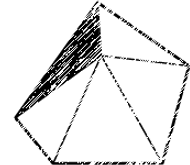
DIVERSITY INITIATIVES
at Bosque School



general terms of oppression
Agents of Oppression
Agents of oppression are members of the dominant social groups in the United States, privileged by birth or acquisition, which knowingly or unknowingly exploit and reap unfair advantage over members of groups that are targets of oppression. Agents of opporession are also trapped by the system of
Oppression
The combination of prejudice and institutional power which creates a system that discriminates against some groups (often called "target groups") and benefits other groups (often called "dominant groups"). Examples of these systems are racism, sexism, heterosexism, ableism, classism, ageism, and anti-Semitism. These systems enable dominant groups to exert control over target groups by limiting their rights, freedom, and access to basic resources such as health care, education, employment, and housing. There are four levels of oppression (Internalized, Interpersonal, Intercommunity, Institutional).
Internalized Oppression
The process whereby people in the target group make oppression internal and personal by coming to believe that the lies, prejudices, and stereotypes about them are true. Members of the target groups exhibit internalized oppression when they alter their attitudes, behaviors, speech, and self-confidence to reflect the stereotypes and norms of the dominant group. Internalized oppression can create low self-esteem, self-doubt, and even self-loathing. It can also be projected outward as fear, criticism, and distrust of members of one's target group.
Privilege
Privilege operates on the personal, interpersonal, cultural, and institutional levels and gives advantages, favors, and benefits to members of dominant groups at the expense of members of target groups. in the United States, privilege is granted to people who have membership in one or more of these social identity groups: White people; Able-bodied people; Heterosexuals; Males; Christians; Middle or owning class people; Middle-aged people; English-speaking people. Privilege is characteristically invisible to people who have it. People in dominant groups often believe that they have earned the privileges that they enjoy or that everyone could have access to these privileges if only they worked to earn them. In fact, privileges are unearned and they are granted to people in the dominant groups whether they want those privileges or not, and regardless of their stated intent. Unlike targets of oppression, people in dominant groups are more frequently unaware that they are members of the dominant group due to the privilege of being able to see themselves as persons rather than stereotypes.
Targets of Oppression
Targets of oppression are members of social identity groups that are disenfranchised, exploited, and victimized in a variety of ways by agents of oppression and the agent's systems or institutions. Targets of oppression are subject to containment, having their choices and movements restricted and limited, are seen and treated as expendable and replaceable, without an individual identity apart from their group, and are compartmentalized into narrowly defined roles. Targets of oppression have fewer "life chances" or benefits as a result of their membership in a particular social group. As examples, there is a higher likelihood that African American males will be arrested than White males; there is a greater chance that males will have a higher salary than females; and there is a higher probability that persons using a wheelchair for mobility will have fewer job opportunities that non-disabled people.
These definitions were taken from handouts created by the Santa Fe Mountain Center in Santa Fe, NM.






